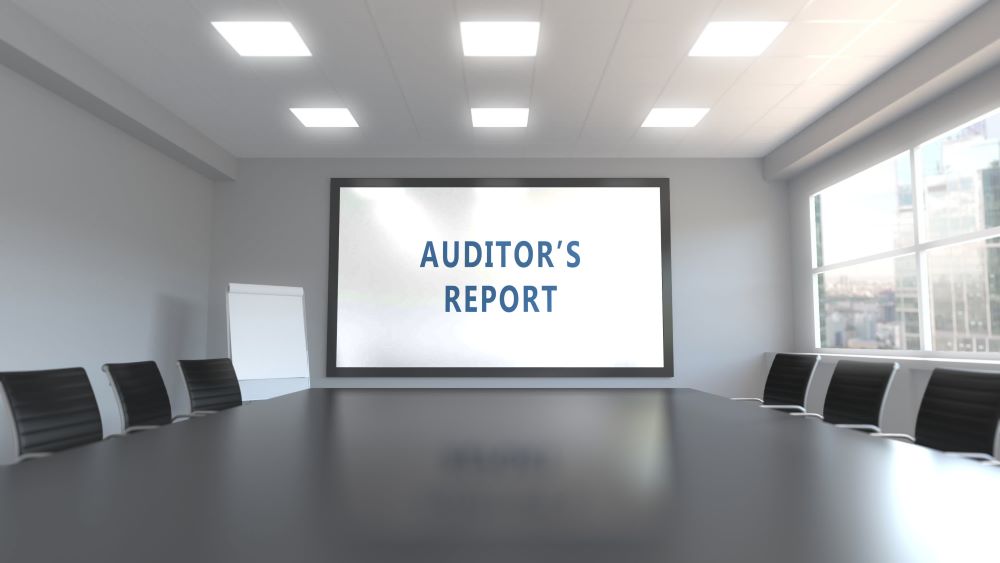
November 9, 2021

Atlanta businesses required to undergo an annual financial statement audit will notice several new changes to the auditor’s report. Outlined in the Statement on Auditing Standards (SAS) 134 – Auditor Reporting, the modifications are designed to increase the value of the report to management. The changes have been years in the making – going back to 2011 when the Accounting Standards Board began the path to more consistent auditing standards for all entities. In 2015, the Public Company Accounting Oversight Board (PCAOB) and the International Accounting Standards Board (IASB) made changes to auditor report requirements, which paved the way for SAS 134. Much like other standards updates, the changes outlined in SAS 134 will help to make the auditor’s report more useful and transparent to financial statement users. The report will feature the prioritization of the auditor’s opinion in the new layout, the option to include key audit matters, and new going concern disclosure requirements. To help clients, prospects, and others, Wilson Lewis has provided a summary of the key details below.
The audit opinion and basis will be presented first in the new layout as opposed to much later. This gives the audit opinion, which many consider to be the most important part of the report, and ensures that financial statement users will not miss key information. In this section, the report will address the qualitative aspect of the entity’s accounting practices and the relevance of accounting policies. Auditors will need to attest to whether the information presented in the financial statements is “relevant, reliable, comparable, and understandable.”
Further, the basis for the opinion section will be required in every report, not just those with modified opinions
Within the basis, certain statements need to be denoted, including the auditor’s independence and other ethical responsibilities. This includes wherein the report the auditor’s responsibilities under Generally Accepted Auditing Standards (GAAS) are located, that the audit was conducted in the U.S. according to GAAS, and whether the evidence is sufficient to render the opinion.
Where the basis for the opinion is required, disclosure of key audit matters will be optional – though it must be decided at the beginning of the engagement whether to include it. This is largely done at the behest of those charged with the company’s governance. Private equity firms and not-for-profit entities would be the most likely to benefit from any additional disclosures presented in this optional section.
Where there may be substantial issues related to governance that the auditor wants to call out to management and the Board, if applicable, the disclosure will address the issues as needed. These include areas of higher risk of material misstatement, involving significant management judgment, and/or significant events or transactions during the auditing period.
This is like the PCAOB’s critical audit matters and international standards’ key audit matters. Note that the disclosure of key audit matters is not a substitute for other required disclosures, a modified opinion, going concern reporting, or a separate opinion on other issues.
In previous auditor’s reports, going concern was only mentioned in the auditor’s report if there was truly a question about the company’s ability to continue operations beyond a certain point.
SAS 134 requires the auditor’s report to explicitly call out that management has assessed going concern and determined that it does not apply. If, however, management determines that a going concern raises substantial doubt, then the report will include a separate section with the heading “Substantial Doubt about the Entity’s Ability to Continue as a Going Concern.”
The new heading is an update on the former “Emphasis-of-Matter.” In that case, the auditor would also bring to light any specific facts or circumstances related to going concern not otherwise mentioned in the financial statements.
Everything from the previous auditor’s report has been migrated, with a few new additions. Management and the auditor will also need to explicitly state their own responsibilities regarding the audit, such as expanded descriptions for management’s responsibility to assess going concern and the auditor’s responsibilities to exercise professional judgment and skepticism. Finally, the report should also specify the audit’s role is to detect errors, not fraud, and that audits by themselves are not a guarantee against misstatements.
Contact Us
Calendar year-end or fiscal year-ends after the effective date will need to use the new standards on the next auditor’s report. Now is the time to become familiar with the changes and how management will be impacted. If you have questions about the information outlined above or need assistance with an upcoming audit, Wilson Lewis can help. For additional information call us at 770-476-1004 or click here to contact us. We look forward to speaking with you soon.